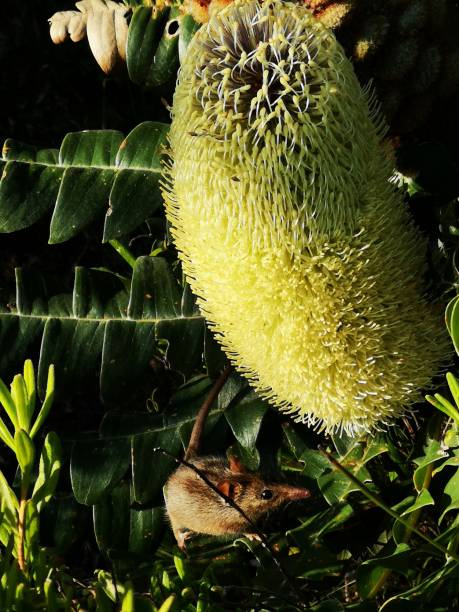Remarkable Insights into the Intricate World of Honey Possums
Introduction: Venturing into the fascinating realm of the Honey Possum, a unique creature known for its nectar-loving lifestyle, we reveal a world marked by adaptability, survival and an interesting ecological impact. This article unravels the captivating life of Honey Possums, shedding light on their role in the ecosystem, their behavioral traits, and the ongoing research aimed at preserving their species.

The Unfolding Tale of Honey Possums
The Honey Possum, scientifically known as Tarsipes rostratus, is a tiny marsupial native to southwestern Australia. Uniquely adapted to a diet of nectar and pollen, these creatures are the world’s only truly nectivorous mammals. Evolving around 20 million years ago, Honey Possums have survived due to their specialized diet and a unique reproductive system that has intrigued scientists for years.
Recent Discoveries and Developments
In recent news, studies have shown that Honey Possums play a crucial role in the pollination of several native plant species. This revelation has highlighted the importance of their conservation, as their decline could adversely impact the local flora. Furthermore, their distinctive reproductive system, involving sperm that are remarkably large in relation to their body size, continues to be a subject of extensive research.
Honey Possums and Their Impact on the Market
Honey Possums are not typically kept as pets or used in the pet product industry. However, their ecological value has led to an increase in conservation funding and eco-tourism in their native habitats. The estimated market impact is challenging to determine, but their role in pollination indirectly influences the health of other wildlife and the overall ecosystem.
Fact-checking Honey Possums
Contrary to popular belief, Honey Possums are not honey producers. Their name derives from their love for nectar. They have a long, slender tongue to extract nectar from flowers, similar to a hummingbird. Their dietary uniqueness is backed by scientific research, illustrating how nature shapes creatures to fit into specific ecological niches.
Decoding the Complexity of Honey Possums
Honey Possums, though small, have a complex and fascinating life. Their survival strategy involves a combination of dietary specialization, reproductive adaptability, and a nocturnal lifestyle that keeps them safe from predators. Understanding these creatures is not just about appreciating their uniqueness, but also about recognizing their significant role in maintaining ecological balance.
In conclusion, Honey Possums, with their special adaptations and vital ecological role, remind us of the intricate interconnections that bind every life form on earth. Studying them, we gain unique insights into nature’s diversity and the importance of each species in the grand scheme of life.




